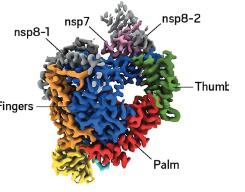What a letdown. I've been writing about remdesivir non-stop for more than a month – every little rumor, bits, and pieces of information, speculation, anecdote(s), and most recently, a non-controlled clinical trial that provided no answer about whether the drug actually worked.
The answer to everything was always "wait for the data from randomized clinical trials."
We now have data from the first trial and I'm more than a little disappointed. Remdesivir is effective in treating COVID-19 but it isn't anything close to a wonder drug. Let's call it a good start. More on that later.
While data from the Adaptive COVID-19 Treatment Trial (ACTT), which was sponsored by the National Institute of Allergy and Infectious Diseases (NIAID) did prove that remdesivir is a legitimate antiviral drug for the treatment of COVID-19 the magnitude of its effect leaves much to be desired.
To put this in perspective let's consider the therapies for two known RNA virus medications, Tamiflu and Sovaldi. Tamiflu is marginally helpful for treating influenza, but only when taken early in the infection. Even so, it knocks one day off the time until symptoms cease – from seven days to six. By contrast, Sovaldi, a nucleoside inhibitor like remdesivir, became the first successful direct-acting antiviral drug to cure hepatitis C infections (1). Sovaldi was a game-changer. Remdesivir is not. Remdesivir is more like Tamiflu than Sovaldi.
Here are the data that have been released so far.
- Patients who got remdesivir recovered 31% faster (11 days vs 15 days) than those who got a placebo.
- There was a relatively modest improvement in survival for the drug-treated group (8.0% mortality rate) compared to those who received a placebo (11.6%), but these results were just short of statistical significance (p = 0.059). This is probably real nonetheless.
Why am I so pessimistic? Because as things stand now, remdesivir will have little or no impact on our (new) daily lives – social distancing, mask use, and fear... Most likely it will be just a better option for people who are already ill and have been hospitalized by COVID-19, and only by four days. Don't get me wrong; the decreased hospital stay (and the lower mortality rate, should the numbers hold up) is not insignificant for those who are already ill enough to be hospitalized. I just don't see any way that remdesivir will keep people out of the hospital at this time, so in this sense, the drug has failed.
Dr. Anthony Fauci, the director of NIAID had a more positive take on the data. He noted that remdesivir provides a proof of concept that an antiviral drug can treat COVID – something he calls "encouraging." He is not wrong; it is encouraging that we have an "off the shelf" drug that is able to inhibit coronavirus, but his comparison to campaign to discover drugs for AIDS that troubles me.
"When I was looking at the data with our team the other night, it was reminiscent of 34 years ago in 1986 when we were struggling for drugs for HIV... We did the first randomized, placebo-controlled trial with AZT. It turned out to have an effect that was modest but that was not the endgame because building on that, every year after, we did better and better."
Dr. Anthony Fauci
AZT, which was first synthesized in 1964 as a potential cancer drug, and was approved for AIDS in 1987 did have a "modest" effect on HIV, but it was very modest. AZT inhibited the virus in cells but the drug was toxic and subsequent clinical trials showed that it made little or no difference to either mortality rates or disease progression, even if taken early in the disease.
And while it is true that researchers did build on AZT that building took a very long time. It wasn't until the early 2000s – about 20 years after HIV was first discovered – that the second generation of nucleoside inhibitors (NRTs), which were potent and effective, became available (2).
It is unfair to compare AZT to remdesivir; remdesivir has demonstrated clinical utility. But even though "we did better and better" every year (with AZT), as Fauci stated, the process took a long time We don't have a long time to get a grip on SARS-CoV-2.
Unfortunately, based on this first trial, it is doubtful that remdesivir will be the "magic pill" people have been hoping for. Remdesivir is not something people will be able to swallow at the first sign of COVID disease and feel better. It's not a pill (3) and it's not magical either.
NOTES:
(1) Technically, the first two direct-acting antiviral drugs for hepatitis C were the HCV protease inhibitors, boceprevir, and telaprevir. They were approved two years before Sovaldi, but they were quickly replaced by it.
(2) The first effective AIDS drug was Saquinavir, (an HIV protease inhibitor, which was approved in 1995
(3) Gilead has stated that it has no plans to develop remdesivir in pill form.
DISCLAIMER: My IRA contains Gilead Stock




